Episode 1: Introduction and All About the OneVetMed Podcast
Podcast: Play in new window | Download
Welcome to the first episode of the OneVetMed podcast with Dr Bob Gaston!
In Episode 1, Dr Bob talks about:
- Why onevetmed?
- Confusion over terms regarding medicine and the various approaches to patient care
- ‘Conventional’ and ‘complimentary’; ‘traditional’ and ‘alternative’; ‘western’ and ‘eastern’; ‘allopathic’ and ‘holistic’
- Confusing – and polarizing
- ‘Scientific’ vs.‘unscientific’ or ‘unproven’
- “Homeopathic” veterinarian? “Holistic” veterinarian? “Conventional” medicine?
- What does a colleague mean when saying that he/she sold the ‘traditional’ practice and now has a “holistic-only” practice.
- Implication is that in order to be holistic, a veterinarian must eschew pharmaceuticals in his or her practice because they are not ‘natural’ or ‘holistic’.
- The practice of medicine = tools in a tool box.
- If all you is have is a hammer, everything looks like a nail
- If the only tool in the box is a prescription pad, then everyone is treated with pharmaceuticals – a drug is deemed to be the answer to every problem.
- Are drugs “bad”? No, but like so many things they are overdone
- We should not “throw the baby out with the bath water” in either direction
- Holism describes a philosophy rather than a modality.
- Holism is not roots and berries.
- Holism is looking at the whole animal, and integrating all the available tools available to the doctor and helpful to the patient.
- The best philosophy of veterinary medicine is one medicine…onevetmed
- The philosophy is holistic…the application is integrative!
- Holistic philosophy and integrative care:
- Consider the unique characteristics of each patient, such as biochemical/genetic individuality, environment, history, physical examination and clinical signs, and results of diagnostic tests.
- The patient is given the full benefit of modern technical advances in pharmaceuticals when appropriate, along with more ‘natural’ therapies where indicated.
- The term ‘natural’ is used in the context of potentially less invasive or having less potential for serious adverse effects.
- When therapies such as herbal medicine, animal chiropractic, acupuncture, laser therapy, massage, and targeted nutritional supplementation are included to treat the patient, and not just the disease, then truly ‘holistic’ care can be achieved.
- Dr. Gaston has been practicing veterinary medicine for over 27 years. He has been developing his integrative approach to patient care for twenty years. This Podcast and related website and blogs are not an attempt to “out-do” any other veterinarian, but a recognition that Dr. Gaston has a particular style of teaching and a unique set of experiences that will speak to, and resonate with, his audience in a way that others may not.
- Dr. Gaston has spoken with hundreds of clients who are frustrated not only with the lack of options in ways to care for their pets but frustrated with the lack of explanations and information they have received form their veterinarians.
- Because of this lack of communication and information, the goal of this Podcast is to:
- Provide reliable health information – often with a non-traditional viewpoint; (some health information will be applicable to humans and pets);
- Illustrations of integrative care using case examples from Dr. Gaston’s practice
- Provide commentary on current events related to veterinary medicine, medicine, and health, including occasional book reviews

Leave a Reply